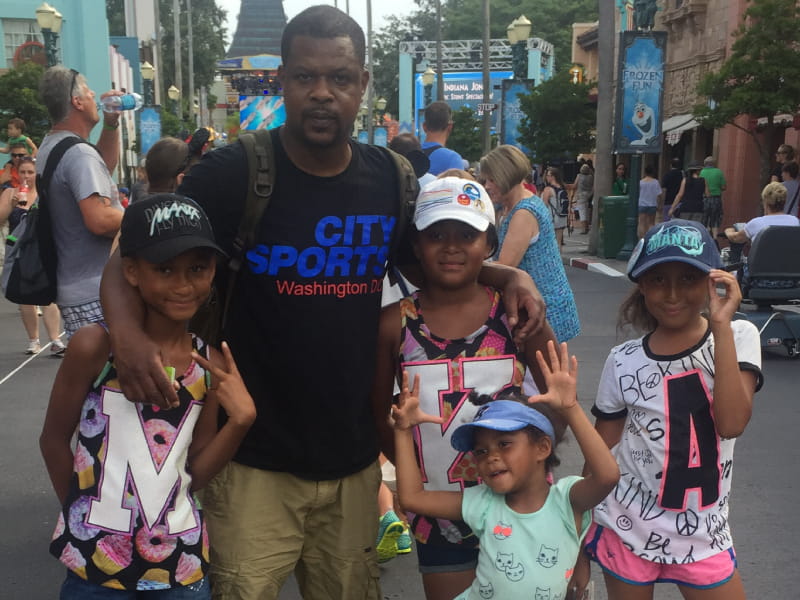Husband's deadly heart disease inspires mother of four to action
By American Heart Association News

Ritru N. Davis' weekday morning routine was simple. The mother of four would wake up, enjoy idle conversation with her husband, Anthony, and then head out the door to drop off their twin daughters at middle school before driving to work in a Virginia suburb.
Anthony always left their Washington, D.C., home soon after to take their two younger daughters to elementary school, before heading to his job.
One morning in January 2017, when Ritru arrived at her office, she received a call from home. She thought it was her mother, who happened to be there at the time. Instead, it was a first responder who asked how long it would take her to get back home.
Over the next 90 minutes, a torrent of thoughts raced through her mind.
"My husband. My family. What was going on?" she said. "So many questions that I wanted answered as I drove home in traffic."
Ritru's worries centered on Anthony. He'd been diagnosed with hypertension more than a decade before, and had suffered a mild stroke in the last few years. Despite those risk factors, he continued smoking and didn't regularly take medication to help control his hypertension.
By the time Ritru arrived home, Anthony was pronounced dead. He was 44.
Two months later, an autopsy report confirmed what Ritru feared. Her husband of 15 years had a diseased heart and had died of heart failure.

Nearly two years later, the beautiful family they built still feels a giant void.
"The twins are adjusting," Ritru said. "They're growing, they're responsible and good about helping me take care of their two younger sisters."
The two younger sisters – who were 10 and 6 when their father died – have the most healing to do, as they and Ritru's mother found Anthony unresponsive.
"The baby will still ask sometime about dad," Ritru said. "It's a process to be that young and lose a parent."
Ritru said she wishes Anthony had paid more attention to his health, especially after his stroke. But he struggled, especially with giving up smoking.
Now, she said, all she can do is persevere and hope to help others learn from Anthony's mistakes.
Even before Anthony's death, Ritru felt motivated to volunteer for the American Heart Association. She used her husband's story to encourage others to pay attention to their own health.
"It just became near and dear to my heart," she said. "Heart disease is the No. 1 cause of death, and it changes your family dynamic. It affects everyone."
Ritru became a team captain for the Greater Washington's American Heart Association Heart Walk. Because the walk often conflicted with activities for their daughters, Anthony never participated in it with her.
"But he would always drive me to the walk and stay as long as he could, and then pick me up after it was over," she said. "So last year was difficult because he wasn't there to take me to the walk. But my daughter went with me. She wrote my husband's name on a banner."
Ritru said she plans to always take part in the Heart Walk to continue getting the word out about how to prevent heart disease and stroke.
"If we are more educated about the disease," she said, and "get the awareness, it helps people."
Stories From the Heart chronicles the inspiring journeys of heart disease and stroke survivors, caregivers and advocates.
If you have questions or comments about this story, please email [email protected].





